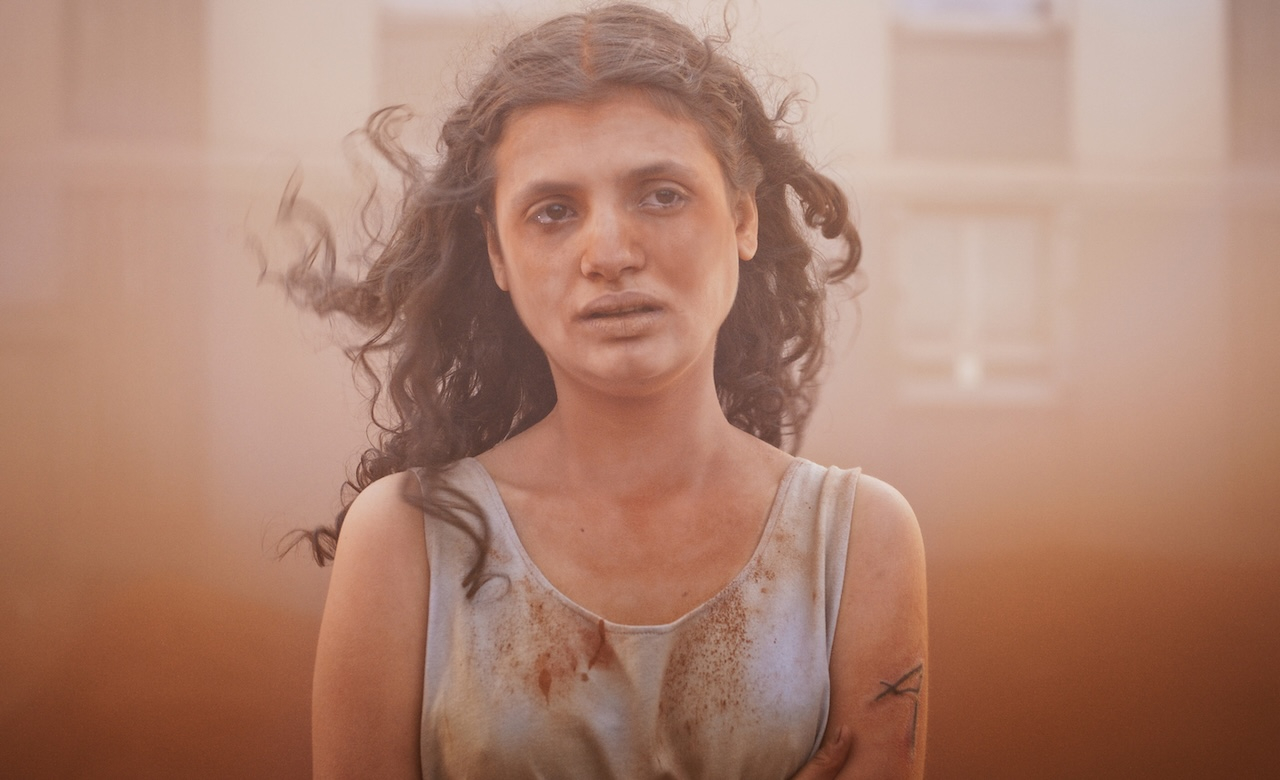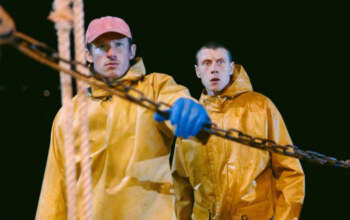Alpha

Four years after Spike Lee awarded Julia Ducournau the Palme d’Or for Titane, both directors return to Cannes to premiere their new films on the same night. In a fitting coincidence, Alpha also features a performance by Tahar Rahim, a fellow member of the 2021 jury.
The story opens in his skin, so to speak. As the camera pulls back from a macro close-up of his epidermis, we see the angry red pinpricks scattered across Amin’s arm. Five-year-old Alpha traces the jagged path of these tiny wounds with a black marker. Years later, as a teenager played by Mélissa Boros, she is knocked out at a party when a needle sinks into her skin, leaving ink in its wake. Because of this reckless, amateur tattoo, Alpha is forced to get her blood tested. As she awaits news of whether a virus might be lurking in her veins, her classmates begin to ostracise her.
The superstitious call the strain “red wind.” As the infected person’s skin dries out, begins to crack and eventually takes on a marble-like texture, their blood turns to powder. Alpha experiences dizzy spells, feeling as though she’s caught in the eye of a cyclone.
While continuing her thematic exploration of the horrors that can lie in store for the human body, Ducournau’s latest presents a harrowing tale of addiction – a tonal gear shift from her previous work. The film unfolds largely within the small, self-contained universe of a family unit, with Alpha’s mother burning the candle at both ends as she cares for her daughter and her brother. Although Alpha’s affliction is less explicitly drug-related than her uncle’s, their shared experience suggests an inherited struggle – a contamination of the bloodline, almost.
The fact that a calendar places some of the events in 1990, the transmission dynamics of the virus and the detail that one of the first identifiable patients Alpha encounters is the male life partner of her teacher all point towards an allegory of the AIDS epidemic. While Alpha bears a kinship with Luca Guadagnino’s Bones and All, it nonetheless invites interpretations that resist definitive reading.
One hardly knows where to begin with the string of standout performances this movie delivers. In only her second feature, Mélissa Boros brings quiet devastation to her portrayal of a character slowly unravelling, marking her as a talent to watch. Tahar Rahim’s physical transformation is utterly alarming – shockingly effective and impossible to look away from. There’s chaos and a furious edge to his performance, like a raw nerve reacting to every stimulus. And then there’s Golshifteh Farahani, without whom the emotional stakes would not land nearly as hard. The relentless, almost obstinate love her character shows for her family – her desperate fight to keep them alive – is agonising to witness.
Even if standing ovations are no real measure of success, Alpha is the first feature at this year’s festival to surpass the ten-minute mark, and could make history if it were to win the Palme d’Or – no female filmmaker has ever received the prize twice. If audiences once had visceral reactions to the gore in Ducournau’s earlier body horror, they will now feel the equally unsettling reverberations of heartbreak.
Selina Sondermann
Alpha does not have a release date yet.
Read more reviews from our Cannes Film Festival coverage here.
For further information about the event visit the Cannes Film Festival website here.
Watch the trailer for Alpha here:



























Facebook
Twitter
Instagram
YouTube
RSS